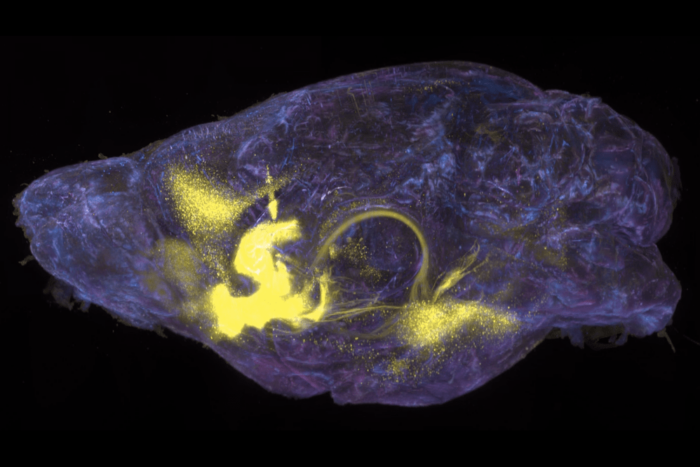Rockefeller University to hold 50th commencement June 12
The Rockefeller University will award doctoral degrees to 26 students in its 50th graduating class at a commencement ceremony on Thursday, June 12. Three distinguished alumni will also receive honorary doctor of science degrees: Gerald M. Edelman, class of ’60, winner of the 1972 Nobel Prize in Physiology or Medicine; Nina V. Fedoroff, ’72, winner of the 2006 National Medal of Science; and Bertil Hille, ’67, winner of the 1999 Albert Lasker Award for Basic Medical Research.
Each doctoral candidate will be presented for the degree by his or her mentor, a tradition dating back to the university’s first commencement ceremony in 1959. Honorary degree recipients will make brief remarks after receiving their degrees.
“Since the first graduating class, nearly 1,000 scientists have begun their careers at The Rockefeller University and many of them have gone on to take leadership positions at research institutions around the world,” says President Paul Nurse. “This year’s graduating class follows in their footsteps, and we are pleased to honor Gerald Edelman, Nina Fedoroff and Bertil Hille as representatives of our alumni’s exemplary contributions to science.”
Of the 26 students who will receive doctoral degrees, half are women. The graduates represent eight countries: Canada, China, England, Germany, India, Japan, Taiwan and the United States. Nine students are enrolled in the Tri-Institutional M.D.-Ph.D. Program, a joint program with neighboring Weill Cornell Medical College and Sloan-Kettering Institute that trains students to be physician-scientists.
Gerald M. Edelman, doctor of science, honoris causa, is director of The Neurosciences Institute and president of the institute’s publicly supported not-for-profit parent organization, the Neurosciences Research Foundation. He is also professor and chairman of the department of neurobiology at The Scripps Research Institute. Edelman has made significant research contributions in biophysics, protein chemistry, immunology, cell biology and neurobiology. His early investigations on the structure and diversity of antibodies led to the Nobel Prize for Physiology or Medicine in 1972, which he shared with Rodney Porter. Edelman is a member of the National Academy of Sciences, the American Philosophical Society and many foreign societies.
Nina V. Fedoroff, doctor of science, honoris causa, is the science and technology adviser to United States Secretary of State Condoleeza Rice. One of the nation’s most prominent researchers in the life sciences and biotechnology, she is currently on leave from her position as the Verne M. Willaman Chair in Life Sciences and Evan Pugh Professor at The Pennsylvania State University. Fedoroff is a member of the National Academy of Sciences and has served on the National Science Board, which oversees the activities of the National Science Foundation. She is a member of the American Academy of Arts and Sciences and the European Academy of Sciences and the recipient of a 2006 National Medal of Science.
Bertil Hille, doctor of science, honoris causa, is professor of physiology and biophysics at the University of Washington School of Medicine. In 1999, he shared the Albert Lasker Award for Basic Medical Research with Clay Armstrong and Rockefeller University’s Roderick MacKinnon for “elucidating the functional and structural architecture of ion channel proteins, which govern the electrical potential of membranes throughout nature.” Hille is a member of the National Academy of Sciences and its Institute of Medicine. In addition to the Lasker Award, he is a recipient of the Gairdner Foundation International Award, among other honors.


